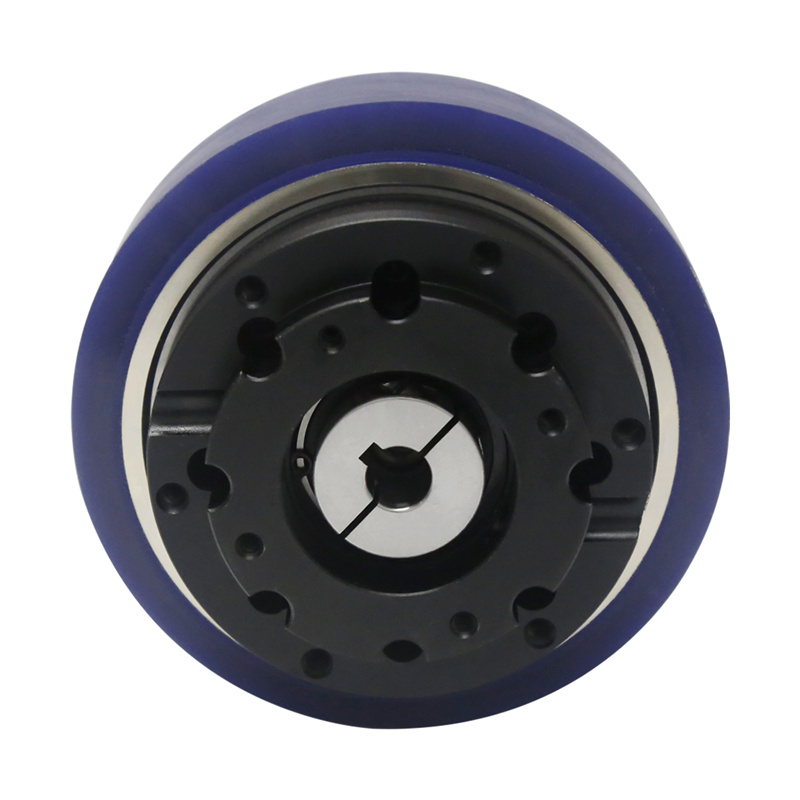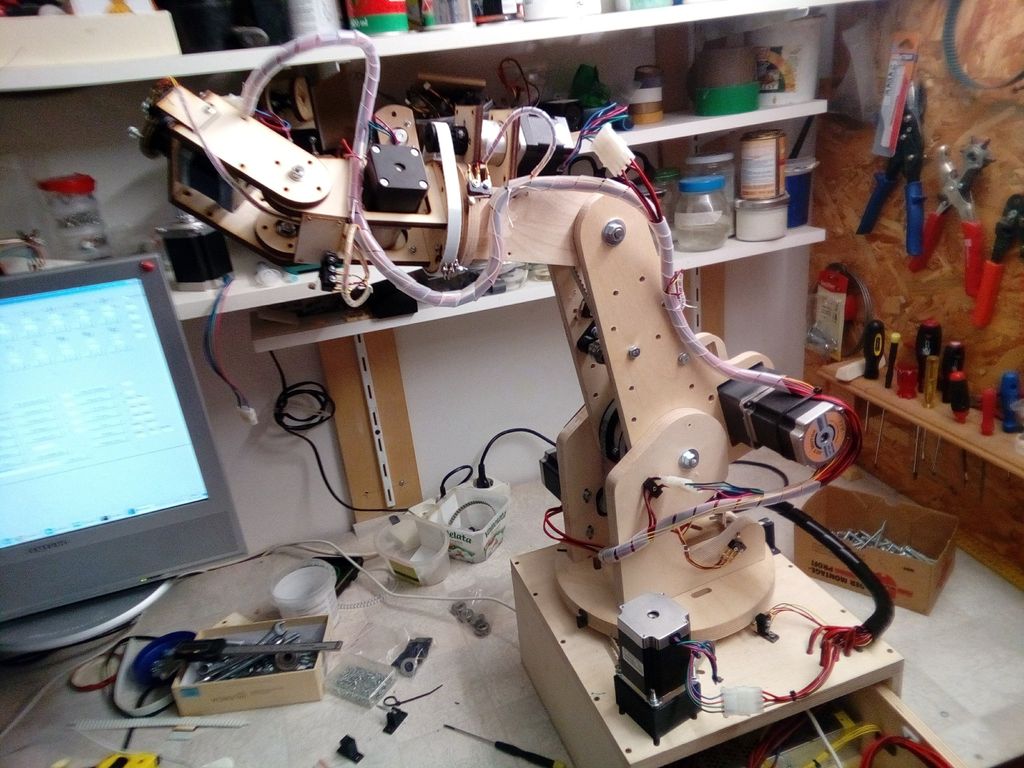


The very bottom joint (the S joint on motorman/yaskawa robots, or J1 on fanuc if you are familiar with them) will need to have at least 180 degrees of rotation, so in a 4:1 gear ratio the stepper motor must be capable of accurately spinning 720 degrees. The arm will be a little over a foot long, so imagine being a degree off at a foot out!) So now I'm researching steppers, and with a 1.8 degree step, and using my 4:1 gear ratio, the accuracy is sufficient for my appetite for perfection haha! I understand steppers don't have the torque of servos, but I'm assuming the gears will more than make up for that.Īnother question is how slow are these steppers going to be? The standard servos are way to quick to be using for the first few joints but again, when I slow them down they are jerky and I don't like that! (Just a quick note, precision is key on the first few joints. I want my arm to move to exact points repeatedly, just as in a manufacturing environment. This would give me 15 minute per degree precision, however I quickly learned that there is no stopping a continuous rotation servo precisely! Whoops! I began looking into pots to use as position sensors for the continuous rotation servos, but am pretty skeptical about the constant accuracy. So I picked up some continuous rotation servos and some gears from a hobby shop to gear them down to a 1:4. I started with basic hobby servos, but I don't like the low resolution of them or the jerky movement while moving slow. Will a stepper motor be the actuator of choice for my joints? For the lower joints on the arm I want excellent precision and high torque. I got an arduino for Christmas, and after a few quick projects I've decided to take on the task of building a user programmable six joint robot arm, similar to the ones in my factory. I also work around a lot of big robots in a major automobile factory. So I just graduated with an associates in electro-mechanical engineering, and have a fascination with robots.


 0 kommentar(er)
0 kommentar(er)
